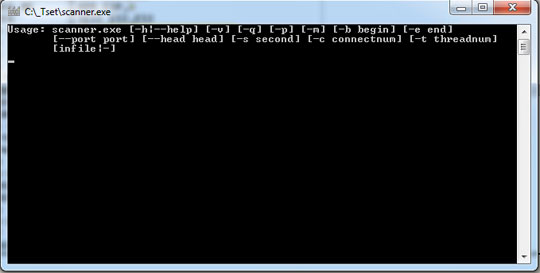HackTool.Win32.WebServScanner.A
N/A
Windows


Threat Type: Hacking Tool
Destructiveness: No
Encrypted: Yes
In the wild: Yes
OVERVIEW
This Hacking Tool arrives on a system as a file dropped by other malware or as a file downloaded unknowingly by users when visiting malicious sites.
TECHNICAL DETAILS
Arrival Details
This Hacking Tool arrives on a system as a file dropped by other malware or as a file downloaded unknowingly by users when visiting malicious sites.
Other Details
This Hacking Tool does the following:
- It requires the following parameters to perform its intended routine:
- -b {IP Address} -e {IP Address} {Optional arguments}
- It scans for HTTP and HTTPS services within the network range provided upon execution
- It can open and read computer files provided in the parameter
- It uses the strings of the read file as conditions for scanning IP addresses
- This hacktool display the following screen for instructions:

It accepts the following parameters:
- -v -> Show version information and exit
- -h or --help -> Show help information and exit
- -q-> Quiet
- -p -> Plain; Scans for HTTP services
- -m -> Monitor
- -b {IP Address} -> First IP Address to be scanned (Required)
- -e {IP Address} -> Last IP Address to be scanned (Required)
- --port {Port Number} -> Port number to be scanned
- --head {String} -> HTTP Header
- -s {Integer} -> Connection Timeout or Timeout wait limit
- -c {Integer} -> Number of concurrent connections
- -t {Integer} -> Number of concurrent threads
- infile|{File} -> Opens and reads the file
SOLUTION
Step 1
Before doing any scans, Windows 7, Windows 8, Windows 8.1, and Windows 10 users must disable System Restore to allow full scanning of their computers.
Step 2
Scan your computer with your Trend Micro product to delete files detected as HackTool.Win32.WebServScanner.A. If the detected files have already been cleaned, deleted, or quarantined by your Trend Micro product, no further step is required. You may opt to simply delete the quarantined files. Please check the following Trend Micro Support pages for more information:
Did this description help? Tell us how we did.

